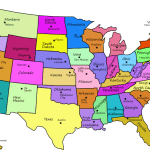
“Summer time, and the livin’ is easy.” So said Gershwin, and he was right, at least ideally. Summer is a time for taking a break, for relaxing, for decompression. So for one week here at the Cranach blog, we will move from vocation to vacation.
Unless some catastrophe breaks out–or, rather, something more catastrophic than we have gotten used to–this week our posts will shift to a lighter mode. Instead of Big Issues and Items of Concern, we will shift to lighter topics, such as fun, sports, and books to read at the beach.
We will kick off our week of relative frivolity by considering the nature of “fun.”
The novelist Walter Kirn takes up that topic in his essay “The Holy Anarchy of Fun.” Read it all, but here is an excerpt:
But what do I mean by “fun”? I’m not quite sure. I don’t mean “pleasure” in the old sense, which usually is associated with eroticism or sensuality, and I don’t mean “play,” which tends to refer to structured games. But fun, as such, is not competitive. No one wins at it. Nor is fun the ‘leisure” of the ancients, which one is supposed to spend in contemplation or civic engagement or other worthy pursuits. I mean something bouncier, simpler, more mundane, a feeling of antic stimulation, the opposite of seriousness. Often there is risk involved in fun. Manageable, perhaps simulated risk. You round a tight curve in a sports car that can handle it. You careen down a snowy hill in a red saucer sled. Sometimes you take a tumble or scrape a knee. Sometimes you scream—a laughing sort of scream.
Kirn writes about watching the movie Top Gun: Maverick in a theater with 4DX technology, which included vibrating seats and shots of water droplets. He writes about how rulers don’t like their subjects to have fun, referencing the COVID measures that specifically targeted fun activities. He writes about the difference between the fun-on-demand imposed by authorities and actual fun, contrasting his school memories of an educational activity with his teachers exhorting the participants to “have fun,” and the genuine hilarity that ensued when a hamster escaped from its cage while class was going on.
I think he is right that games are not fun, as such. Professional athletes, for whom games are their job, will occasionally say that “we really had fun today” when a game degenerates into a blowout of the other team or when teammates do something out of the ordinary. Playing Monopoly can be deadly serious, but it was fun when I played it with my father, mother, and siblings because of the way we would all tease and torment each other.
Kirn captures the “anarchy”–in a good way–of fun. I like the other part of his title, which he doesn’t really discuss: “Holy anarchy.” Is there holiness in fun, if only as an analogy? Could it be that joy for its own sake is something of a foretaste of the feast to come?
Photo: “Hands Up! Roller Coaster Fun” by Austin Kirk via Flickr, Creative Commons 2.0 License [no changes].













